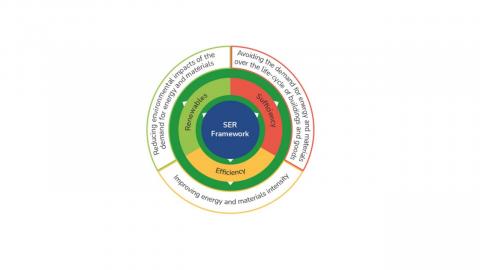Resources - posts
After reaching an “agreement in principle” on the modernisation of the Energy Charter Treaty (ECT), the European Commission’s plans received a setback with the withdrawal of seven EU member states.
The death knell for this archaic treaty was sounded back in 2009 when Russia announced its departure from the ECT. In the past months Poland, the Netherlands, Spain, France, Germany, Slovenia, and Luxembourg have all announced their decision to withdraw prior to the ministerial meeting at which the “agreement in principle” should have been adopted.
This blogpost is a slightly altered version of the sufficiency section included in the report entitled 1.5-Degree Lifestyles: Towards a Fair Consumption Space for All published by Hot or Cool Institute.
Global warming is today’s reality in every region of the planet
The German government has been worried about being sued by the fossil fuel companies behind the Russian gas pipeline under the Energy Charter Treaty.
After Russian tanks rolled into Ukraine on Tuesday, German chancellor Olaf Scholz finally decided to halt the certification of the Nord Stream 2 gas pipeline linking Germany and Russia.

Avoiding the climate emergency requires going beyond the current set of policy measures. Instead, the concept of sufficiency needs to be adapted and applied to today’s environmental and societal challenges. This would provide clear metrics that are equitable and within the Earth’s ecological limits. The application of sufficiency to policies for building stock would provide a decent living standard for all and have a significant impact on limiting global warming.
The RWE case against the implementation of the Dutch climate target provides additional evidence that EU climate law needs provisions to end protection of foreign investment in fossil fuels.
The Dutch Government’s strange relationship with the Energy Charter Treaty (ECT) is coming back to bite the Netherlands.
EU ministers attending the Energy Charter Conference on 16-17 December should work on the collective withdrawal from the ECT if other contracting parties oppose the phase-out of fossil fuels from the treaty’s binding provisions.
The German Presidency should end the comedy of the modernisation of the Energy Charter Treaty and work on a decision to withdraw en masse from the treaty without further delay.
In a laconic “public” communication from another era, EU citizens and lawmakers were informed about the end of the first negotiation round on the Modernisation of the Energy Charter Treaty (ECT).
The EU taxpayer is the main loser from the continuation of the Energy Charter Treaty which locks Europe into carbon and energy injustice at a high cost to taxpayers.
The EU and its member states should collectively withdraw from the Energy Charter Treaty, which protects fossil fuel investments, and go to the UN Climate Summit in New York with a call to develop a ‘Treaty for the Non-Proliferation of Fossil Fuels’, argues Yamina Saheb.
The Energy Charter Treaty (ECT) is a multilateral investment agreement which protects investments in the supply of energy. The ECT was signed and ratified by the EU and its Member States in the 1990’s.
Recurring heatwaves across Europe have been most devastating for the poor. New EU institutions have a mandate to make Europe’s energy transition a just one, but this can only be done if a European Marshall plan is implemented to fight climate change and protect the vulnerable.





